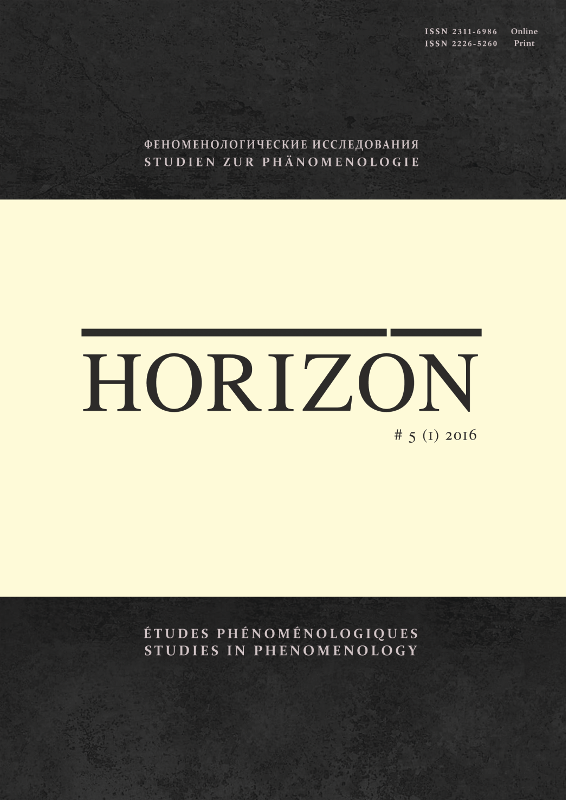THE PERSISTENCE OF SELF-ENCLOSURE IN THE WHOLEPART
RELATIONSHIP: THE CASE OF HUSSERL AND KRACAUER
THE PERSISTENCE OF SELF-ENCLOSURE IN THE WHOLEPART
RELATIONSHIP: THE CASE OF HUSSERL AND KRACAUER
Author(s): Vedran GrahovacSubject(s): Philosophy, Phenomenology
Published by: Издательство Санкт-Петербургского государственного университета
Keywords: Husserl; Kracauer; wholes and parts; Logical Investigations; phenomenology; Critical Theory; phenomenological analysis;
Summary/Abstract: In this text I suggest the possibility of the strategic-philosophical closeness between Husserl and Kracauer,by closely reading Husserl’s Third Logical Investigation and Kracauer’s essay «The Mass Ornament».Although the both thinkers come from the traditionally different and often mutually opposing philosophical schools, neither of them simply dismisses or crosses out the position they criticize. To the contrary, I propose that both thinkers exaggerate the seeming self-evidentiality of the phenomenon they analyze. In the Third Logical Investigation Husserl rearticulates the whole-part relation as it is conceived within the formal ontology and psychologistic logic. The connection between parts is available to us only as the relational tension, which is «accumulated» in the mutuality between the irreparably self-enclosed parts. Fusion is therefore a modification in the unfolding of the relation between parts, where every «termin relation» conditions another one through its own positional completion, while being conditioned by another term. The phenomenological analysis, which is conducted through the intensification of the fixity of the above-mentioned poles, is «measured» by the inability of these poles to be self-evidentially isolated and subsequently reconciled. In the second part of my essay I pay attention to Kracauer’s suggestion that the vitality of the mass ornament is reflected in the contextual insignificance of its parts. Kracauer addresses the problem of mass depersonalization through the close and sarcastic inspection of the role of abstract rationality in the capitalist mode of production. This close inspection adopts the strategy of exaggeration, where the critical distance must not be considered beyond its ability to disclose the selfobscuring apparatus of the mass performances and spectacles. This disclosure, as Kracuaer suggests,must therapeutically lead through the center of the mass ornament, and not away from it.
Journal: Horizon. Феноменологические исследования
- Issue Year: 5/2016
- Issue No: 1
- Page Range: 194-213
- Page Count: 20
- Language: English

